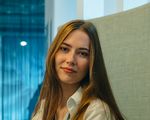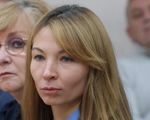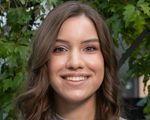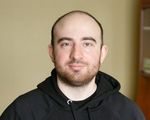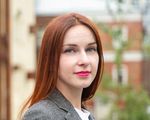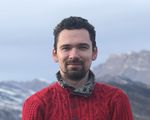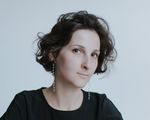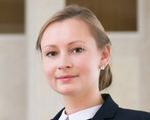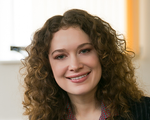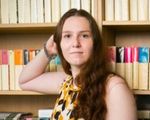About Success Builder
How do you find your place in life? How do you find something to do that both comes naturally to you and makes you happy? The answer is that you have to apply the knowledge you’ve gained from university and from life itself correctly. The Success Builder Project features HSE University graduates who have discovered themselves through an interesting business or an unexpected profession. The protagonists share their experiences and lessons learnt and talk about how they’ve made the most of the opportunities they were given.
Anna Sokolova, who completed her PhD at the HSE Doctoral School of Economics and is an instructor in the Department of Theoretical Economics, has been offered a position as an Assistant Professor at the University of Nevada, Reno, demonstrating the high demand for graduates of HSE doctoral programmes on the international academic job market.
When did you know you wanted to pursue a career in academia? How is your experience with being offered a teaching position abroad unique?
Overall, I’ve always wanted to work on independent research, and my parents encouraged this. My father, Valery Sokolov, is a physics professor and my mother, Evgeniya Sokolova, has a degree in engineering.
I’ve known I was particularly interested in macroeconomics since I was an undergraduate student. I didn’t quite get what academic work truly entailed at the time though. This understanding came later, around the time of my master’s programme, and it was mostly thanks to talking with my academic supervisor and my colleagues who focused on macroeconomics. I then decided I needed to further my education, and I decided to do this in Russia, in a full-time advanced doctoral programme at HSE, for a number of reasons. In 2015 – again, thanks to the targeted efforts (and angel-like patience!) of my professor and academic supervisor Sergey Pekarski – I completed my doctoral programme and defended my dissertation, and I needed to decide what to do next. So I thought I would try my luck on the international job market. My experience is somewhat different from standard practice because Russian PhD graduates do not typically enter this job market right after defending their dissertation.
For an academic, what is the hardest part of finding a job on the international market?
I have to clarify that I’m talking about the market for economists who have completed graduate school and hold a doctorate degree. In the West, this is called a PhD, while in Russia we call it a ‘candidate of sciences.’ From a formal point of view, they both allow you to work as an Assistant Professor. What’s most difficult about finding a job abroad is not that the candidate of sciences degree somehow differs from a PhD; they essentially mean the same thing, namely, that you did well in graduate school. You don’t have to do anything else to confirm that they are equal.
What’s most difficult is that when you get a PhD from a university whose graduates have never really gotten a job on the international market before (or their job history has not been very successful), then a potential employer faces uncertainty since it is difficult for him or her to judge the quality of the doctoral programme you completed. This is a problem for universities in other countries as well. In order to compensate for this, you need good letters of recommendation. The standard requirement is three letters, but in my case I needed four – one from my professor and academic supervisor (Sergey Pekarsky), as well as one each from my three co-authors (ICEF Professor Udara Peiris, University of Oxford Professor Dimitrios Tsomocos, and Advisor to the Czech National Bank’s Board of Directors Tomáš Havránek). In addition, you need a good job market paper, which is an article that a potential employer can use to evaluate a candidate’s research potential, specialisation, and skills. In my case, my job market paper was the one I wrote with professors Peiris and Tsomocos, "Capital Flows, Default, and Renegotiation in a Small Open Economy".
What kind of experience are you taking abroad? What did you achieve here in Russia, and why did you decide to work there?
When I was getting my master’s I started conducting seminars in the Faculty of Economics, and I continued doing this in my PhD programme. In addition, I conducted research, which I believe played an important role in my finding a job abroad. I was lucky – when I was a master’s student I found myself in a friendly and stimulating environment within the research laboratory for macroeconomic analysis, where I continue to work under the leadership of Sergey Merzlyakov, the head of the lab. Currently, I’m particularly interested in two fields of research – capital flows between countries under the risk of default (this is what my dissertation and job market paper were on) and meta-analysis in consumption theory. When I was in graduate school, I also completed an internship at ENS Cachan in France under the direction of Professor Hubert Kempf, and at the end of last year I did an internship at the University of California, Berkeley, under Dmitry Livdan.
There are several reasons I accepted an offer to work at an American university, one of which was to gain new experience that, I hope, will serve as the catalyst to my future academic development. At western universities, it is normal for someone to enter the international job market right after the dissertation defence, while it is more of an exception than a rule for a graduate to stay and work at their alma mater. This isn’t the case here in Russia, but there are objective reasons for this. Our universities are not that quick to exchange graduates, and there are therefore fewer options for HSE graduates who want to stay in Russia.
How does HSE help its students and teachers integrate into the international community? What was your experience?
HSE really wants its PhD graduates to enter the international market. My own experience is evidence of that. I was able to get to where I am now thanks to the active involvement of my professors from HSE, in particular my academic supervisor Sergey Pekarsky and ICEF professors Udara Peiris and Alexei Boulatov, who all played a key role in helping and supporting me. Without them, nothing would have happened. It is thanks to them that I was able to pick an academic programme, learn my way around the job market, understand what potential employers wanted, significantly improve the quality of my research, and find my invaluable internship experience in California.
The inspiration for my idea to look for work abroad came from the dean of the Faculty of Economic Sciences, Oleg Zamulin, who along with the head of the advanced doctoral programme Anton Suvorov and Professor Konstantin Sonin helped me at all stages of the process. It is extremely important for a professional macroeconomist to be able to properly present his or her own research. I worked on this skill during seminars in the doctoral programme and at NUL macroeconomic analysis seminars (led by Sergey Merzlyakov). The feedback I received from Anton Suvorov, Sergei Popov, and my colleagues from the department for theoretical economics really helped me develop this skill as well.
In total, I had 11 interviews with universities, central banks, and one research centre, and several of them invited me to visit their campuses
During my time in the PhD programme, I was able to participate in a large number of international academic events, conferences, and summer schools, and the Faculty of Economic Sciences always provided me with financial support. This experience was irreplaceable. At one of the conferences I met my Czech co-author Tomáš Havránek, with whom I’ve been working on a number of joint projects. But without the support of the HSE economics faculty, our meeting simply would have never taken place. Professors Dimitrios Tsomocos and Dmitry Livdan, who visit ICEF often, also helped me quite a bit.
I’ll also add that when future graduates of our doctoral programme want to find a job, I’d be happy to share my experience and help with what I can.
What kind of internet resources are out there for finding a job in the academic world?
The main resources are Job Openings for Economists, Economics Job Market, INOMICS, and SSRN. There are also resources to find jobs in a particular country, for example Jobs.ac in Great Britain.
How many universities responded to your resume, what were their offers, and why did you chose Nevada?
In total, I had 11 interviews with universities, central banks, and one research centre, and several of them invited me to visit their campuses. Aside from Nevada, I also received a few offers from European schools. I liked all of the offers, but Nevada seemed like the best option for me. I really like research, and my future colleagues in Nevada value that above all else.
As for pedagogical activities, is it easy for a researcher to teach?
I think that completely depends on one’s individual predisposition. Teaching isn’t that difficult for me personally, but some of my colleagues in the department are much more talented than I am in this area.
How will you continue on with your research, and what kind of opportunities will you have in Nevada?
I am currently working on several projects, and now that the job-hunting process is finally over, I am planning on focussing all of my efforts on this work. My main research consists of a project with professors Udara Peiris and Dimitrios Tsomocos on capital flows and defaults, as well as a project with professor Tomáš Havránek that concerns a meta-analysis on consumption theory and rational and irrational economic agents. I really love working with them all, and since their academic experience significantly surpasses mine, I try to learn from them as much as I can.



